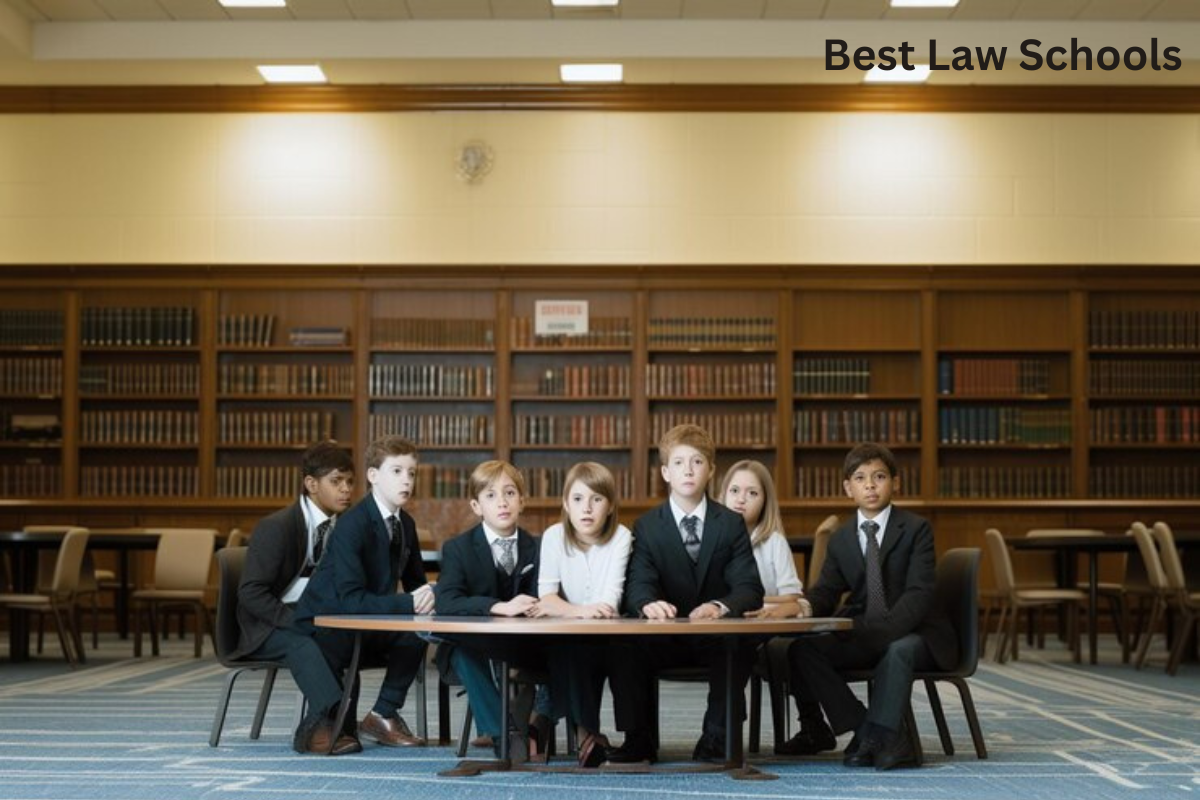Introduction
A best law school is one that offers high-quality education and strong career opportunities. It usually has a good reputation, experienced faculty, and successful graduates. Best law schools often have strong bar passage rates and high employment rates for their graduates. Choosing the right law school is important because it can impact your future career. A good school can provide valuable connections, better job prospects, and a solid foundation in law.
Overview Of The Top-ranked Law Schools
In the US, some of the top law schools include Harvard Law School, Yale Law School, Stanford Law School, and Columbia Law School. These schools are known for their strong academic programs, expert faculty, and influential alumni. They often rank high on lists of best law schools due to their long-standing reputations and successful graduates.
Criteria Used For Ranking
Top law schools are ranked based on several factors:
- Reputation: This includes how well the school is regarded by peers and legal professionals.
- Bar Passage Rates: The percentage of graduates who pass the bar exam on their first attempt.
- Employment Rates: The number of graduates who find jobs in the legal field shortly after graduation.
- Faculty Quality: The experience and qualifications of the teaching staff.
- Student Satisfaction: How students feel about their education and campus life.
These factors help determine which schools are considered the best and most effective in preparing students for legal careers.
Accreditation And Reputation
Make sure the law school is accredited by the American Bar Association (ABA). Accreditation ensures the school meets high educational standards. The school’s reputation also matters. A well-known school can offer better job prospects and professional connections.
Location And Campus Environment
Consider the location of the law school. Think about whether you prefer an urban or rural setting. The campus environment includes facilities, housing, and student life. A comfortable and supportive campus can make a big difference in your experience.
Specializations And Areas Of Focus
Different law schools offer different specializations. If you have a specific interest, like environmental law or corporate law, look for schools with strong programs in that area. This helps ensure you get the training you need for your career goals.
Costs And Financial Aid Options
Law school can be expensive. Review the costs and look for financial aid options. Many schools offer scholarships, grants, and loans. Understanding the total cost and available financial support is important for managing expenses.
Alumni Network And Career Services
A strong alumni network can help you with job placements and career advice. Good career services at the law school can assist with internships, resume writing, and job interviews. These resources are valuable for starting your legal career.
Ranking Methodologies
Explanation Of Different Ranking Methodologies
Ranking methodologies vary, but common sources include U.S. News & World Report and QS World University Rankings. U.S. News & World Report ranks law schools based on factors like reputation, bar passage rates, and employment rates. QS World University Rankings considers global reputation, faculty quality, and research output. Each methodology uses a unique set of criteria to evaluate schools.
How These Methodologies Affect The Rankings
The rankings can differ based on what each methodology values most. For example, U.S. News may focus more on American law schools’ reputation and employment outcomes, while QS may emphasize international aspects like faculty quality and research. This means a law school might rank higher on one list and lower on another, depending on which factors are weighted more heavily. Understanding these differences can help you choose a school that fits your priorities.
Top Law Schools For Specific Specializations
Corporate Law
For corporate law, top schools include the University of Pennsylvania Law School and Columbia Law School. These schools offer strong programs in business and finance law, preparing students for careers in corporate legal departments and law firms.
Criminal Law
If you’re interested in criminal law, consider schools like Harvard Law School and Stanford Law School. These schools have renowned criminal law programs with opportunities for hands-on experience in criminal defense and prosecution.
Environmental Law
For those focusing on environmental law, schools like Vermont Law School and Stanford Law School are top choices. They offer specialized courses and programs that address environmental issues, policy, and advocacy.
International Law
In international law, top schools include Yale Law School and Georgetown University Law Center. These schools have strong programs in international relations, human rights, and global legal issues.
Public Interest Law
For a focus on public interest law, look at schools like NYU School of Law and UCLA School of Law. These institutions offer programs and resources dedicated to public service, legal aid, and community advocacy.
Advantages and Disadvantages of Each Type
Advantages:
- Often have lower tuition for in-state students, making them more affordable.
- Usually have a strong connection to the local legal community and state government.
- May offer more opportunities for in-state students to gain internships and clerkships.
Disadvantages:
- Out-of-state tuition can be higher, though still generally lower than private schools.
- May have larger class sizes, which can mean less individual attention.
Private Law Schools
Advantages:
- Often have smaller class sizes, allowing for more personalized attention and close relationships with faculty.
- May offer more financial aid and scholarships to help offset tuition costs.
- Frequently have strong national and international reputations.
Disadvantages:
- Typically have higher tuition fees, regardless of residency.
- Might have less emphasis on local legal issues and connections.
Examples Of Top Public And Private Law Schools
Top Public Law Schools:
- University of California, Berkeley (Boalt Hall): Known for its strong programs in environmental law and intellectual property.
- University of Virginia School of Law: Renowned for its rigorous academics and strong alumni network.
Top Private Law Schools:
- Harvard Law School: Offers a broad range of specializations and has a prestigious global reputation.
- Yale Law School: Known for its small class sizes and influential faculty, as well as a focus on public interest law.
Impact of Location on Law School Experience
Urban vs. Rural Law Schools
- Advantages: Located in large cities, offering access to numerous legal firms, courts, and government agencies. Students often have more opportunities for networking, internships, and job placements. The vibrant city life can provide diverse cultural experiences and professional events.
- Disadvantages: Higher living costs and potentially more stressful environments. The fast pace of city life might not suit everyone.
Rural Law Schools:
- Advantages: Lower living costs and a quieter, more focused environment. Often have strong ties with local communities and may offer more personalized attention from faculty. The slower pace can be less stressful and more conducive to academic focus.
- Disadvantages: Fewer local internship and job opportunities compared to urban schools. Limited access to large legal networks and fewer professional events.
Opportunities For Internships And Externships
Urban Locations: Generally provide more options for internships and externships due to the higher concentration of law firms, government agencies, and non-profit organizations. Students in urban schools often benefit from a broader range of legal experiences and easier access to major legal markets.
Rural Locations: May offer fewer immediate internship and externship opportunities but often have strong connections with local businesses and community organizations. Students may gain unique experiences working with smaller firms or in public interest roles that have a significant impact on local communities.
Student Life And Campus Culture
Diversity And Inclusion
Diversity and inclusion are key aspects of campus culture. Look for law schools that actively promote a diverse student body and inclusive environment. Schools with strong diversity programs and support networks can provide a richer educational experience and prepare you for working in a diverse legal field.
Extracurricular Activities And Student Organizations
Extracurricular activities and student organizations enhance the law school experience. These can include law review, moot court competitions, student government, and various legal interest groups. Participation in these activities helps build skills, connect with peers, and explore legal interests outside the classroom.
Support Services For Students
Support services are crucial for a successful law school experience. These may include academic advising, career counseling, mental health resources, and tutoring. Schools that offer robust support services can help you manage the demands of law school and succeed both academically and personally.
Graduate Success And Employment Outcomes
Bar Passage Rates
Bar passage rates are a key indicator of a law school’s effectiveness. Higher bar passage rates suggest that the school prepares its students well for the bar exam. This is an important factor to consider, as passing the bar is crucial for becoming a licensed attorney.
Employment Statistics And Job Placements
Employment statistics show how many graduates find legal jobs after graduation. Look for schools with high job placement rates and strong connections with law firms, government agencies, and non-profits. Good employment statistics indicate that the school’s graduates are successful in finding relevant legal work.
Salary Expectations And Career Prospects
Salary expectations and career prospects vary depending on the law school and its location. Top law schools often lead to higher starting salaries and better career opportunities. Research the average starting salary for graduates and the types of positions they secure. This can give you a sense of the potential return on investment for attending the school.
Advice For Prospective Law Students
Tips for Researching and Visiting Law Schools
- Start Early: Begin researching law schools well before application deadlines. Look into school rankings, specializations, and faculty.
- Visit Campuses: If possible, visit campuses to get a feel for the environment. Attend information sessions, tour facilities, and talk to current students.
- Consider Location: Think about whether you prefer an urban or rural setting and how the location fits your lifestyle and career goals.
- Check Accreditation: Ensure the schools you are interested in are accredited by the American Bar Association (ABA).
- Evaluate Culture: Assess the campus culture and diversity. Look for schools that align with your values and interests.
How To Prepare For Law School Applications
- Prepare Your LSAT: Study thoroughly for the Law School Admission Test (LSAT). Your score is a major part of the application.
- Gather Transcripts: Collect and organize your academic transcripts. Ensure they reflect your best work and grades.
- Write a Strong Personal Statement: Craft a compelling personal statement that highlights your motivation for studying law and your unique qualities.
- Secure Recommendations: Obtain letters of recommendation from professors or professionals who can speak to your abilities and potential.
- Meet Deadlines: Keep track of application deadlines and ensure all materials are submitted on time.
- Research Financial Aid: Look into scholarships, grants, and loan options to help fund your education.
These steps can help you make informed decisions and strengthen your law school applications.
Conclusion
Choosing the best law school involves considering factors such as the school’s reputation, bar passage rates, employment statistics, and support services. It’s important to evaluate whether you prefer an urban or rural setting and to explore the school’s diversity, extracurricular activities, and specializations. Remember to research thoroughly and visit campuses to ensure a good fit for your goals and preferences. A well-informed decision can greatly impact your legal career and overall experience.
FAQS
What Are The Top Law Schools In The United States?
The top law schools in the U.S. include Yale, Stanford, Harvard, University of Chicago, and Columbia.
What Are The Top Law Schools In The United States?
Law schools look for strong academic records, high LSAT scores, relevant work or life experiences, and strong personal statements.
How Long Does It Take To Complete Law School?
Typically, law school takes three years for full-time students to complete.
How Expensive Is Law School?
The cost of law school varies, but top law schools can cost between $50,000 to $70,000 per year in tuition alone.
What Can I Do With A Law Degree?
With a law degree, you can become a lawyer, work in government, join a nonprofit, work in corporate law, or pursue careers in policy or academia.
Did you find this article helpful? Check out the rest of our blog on Law Firm Genius.
















Got a Questions?
Find us on Socials or Contact us and we’ll get back to you as soon as possible.